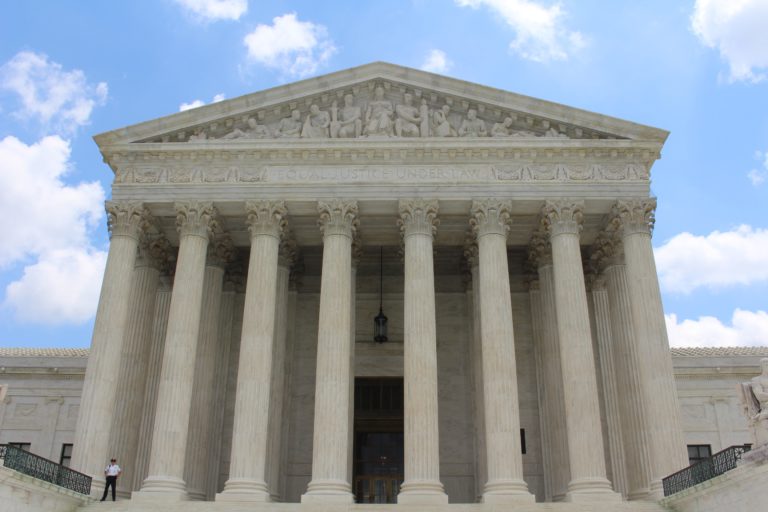Global trends in climate change litigation: 2020 snapshot

Download
Climate change litigation has been growing in importance over the past three decades as a way of either advancing or delaying effective action on climate change. This report reviews key developments around the world in climate litigation over the period May 2019 to May 2020, in the latest in our annual series.
The report highlights evolving themes and strategies, including an updated assessment of known case numbers and metrics for categorising cases. It explores the continued and growing focus in climate cases on human rights and the different strategies used in recent litigation against major fossil fuel companies. It also offers insights and suggestions for how litigants and policymakers could measure the impacts of climate litigation.
A selection of ongoing cases is used to illustrate these points, from the Grantham Research Institute-maintained Climate Change Laws of the World database (cases outside the US) and The Sabin Center for Climate Change Law at Columbia Law School’s Climate Change Litigation database (US cases).
Main messages
- From May 2019 – May 2020 climate litigation cases were filed across six continents. They include complaints made to National Contact Points for the OECD Guidelines for Multinational Enterprises, the UN Committee on the Rights of the Child, and to UN Special Rapporteurs.
- Outside the Unites States, trends in the type of plaintiff and defendant are similar to previous years: over 80 per cent of these cases have been brought against governments, typically by corporations or individuals. Climate change was at the centre of the legal argument in about 41 per cent of cases, and was a peripheral issue in the remaining 59 per cent.
- For non-US cases, 58 per cent of cases had outcomes favourable to climate change action, 33 per cent had unfavourable outcomes, and 9 per cent had no discernible likely impact on climate policy.
- Important developing trends in litigation strategies and types of arguments adopted by litigants include:
- Human rights arguments are being used as support in an increasing number of cases. The ultimate success in December 2019 of the Urgenda case – seeking an injunction to compel the Dutch government to reduce its emissions – provides an even greater impetus for these cases.
- Various strategies are being used in lawsuits against the Carbon Majors, the major fossil fuel companies, ranging from claims of nuisance to fraud and disclosure-related lawsuits, particularly in the United States.
- Litigants are also using strategies such as taking claims of deceptive ‘greenwashing’ marketing campaigns by Carbon Major companies to courts or to non-judicial bodies.
- In 2019 there was an escalation in the use of litigation by activists and advocacy groups, including as a part of the wave of climate protests that took place in many cities around the world.
- The COVID-19 crisis of 2020 could lead to a delay or decrease in new filings; alternatively, the crisis could motivate litigants to find new grounds for bringing cases, linking the current health emergency to the climate emergency.
- While direct and indirect regulatory impacts can be observed among all types of climate litigation, questions about whether the outcomes of these cases actually help to address climate change in a meaningful way remain unanswered.
- A handful of successful landmark cases against governments indicates the type of pro-regulatory impacts that can result from climate litigation. A clear example is the Dutch government’s commitment made in response to the final decision in the Urgenda case.
- Regulatory challenges to permits authorising high emitting projects can also be considered successful in regulating emissions.

